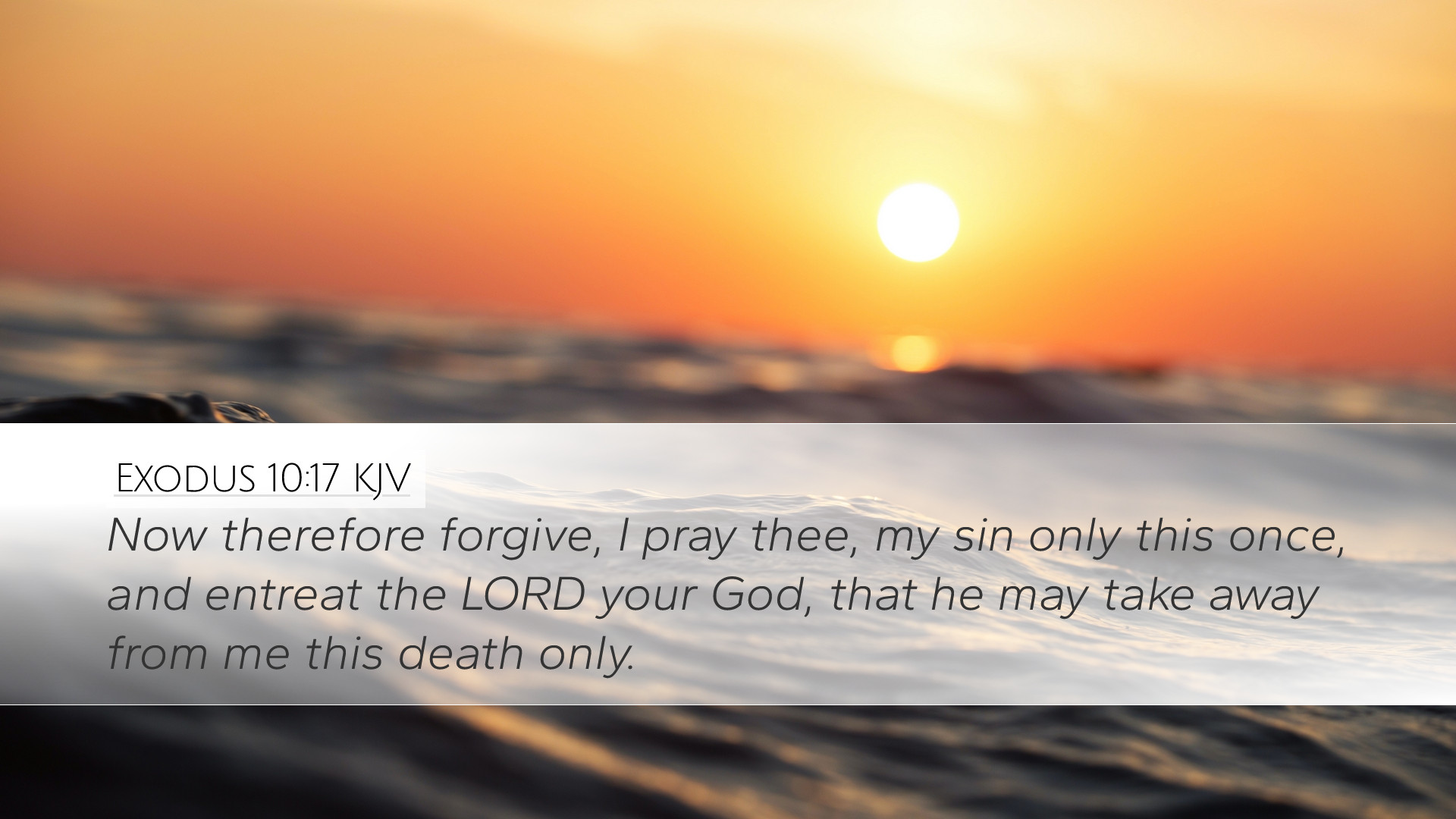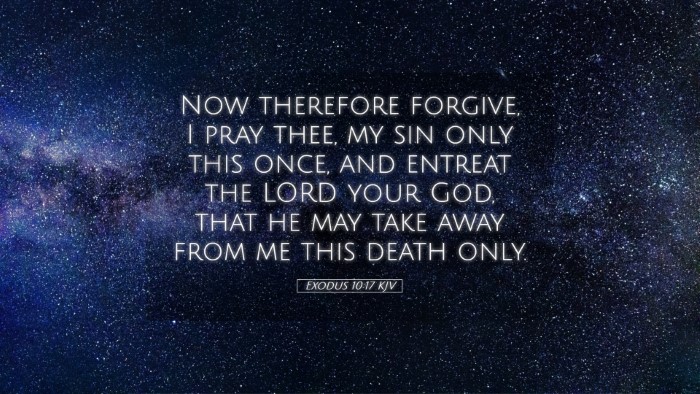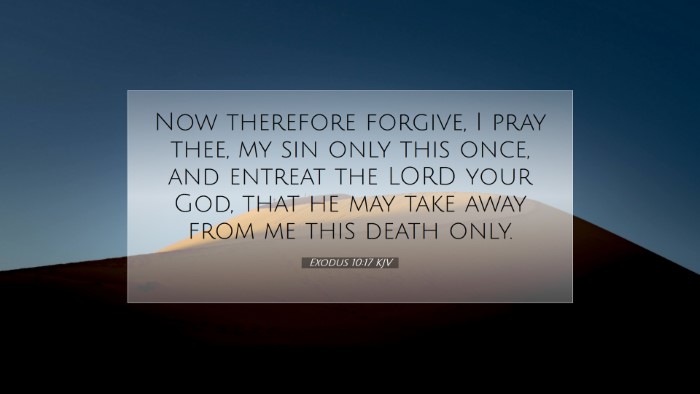Commentary on Exodus 10:17
Verse: "Now therefore, forgive, I pray you, my sin only this once, and entreat the LORD your God, that He may take away from me this death only." (Exodus 10:17)
Introduction
Exodus 10:17 captures a poignant moment in the narrative of the plagues of Egypt, where Pharaoh, confronted with dire consequences, pleads for mercy. This plea encapsulates themes of sin, repentance, and divine intervention that resonate throughout biblical literature. Scholars and theologians offer rich commentary on this verse, emphasizing its significance for understanding the character of God, the nature of repentance, and the dynamics of human responsibility in the face of divine judgment.
Pharaoh's Plea for Forgiveness
Matthew Henry notes that the phrase "forgive, I pray you" illustrates Pharaoh's awareness of his sinful state, prompting a moment of humility. Despite his previous hardened heart, the mounting pressure of the plagues forces him to acknowledge his wrongs and seek a temporary reprieve. This reflects a common pattern in human behavior where crises lead to urgent appeals for mercy, even when there is no genuine heart change.
Adam Clarke further elaborates on Pharaoh's request, highlighting the phrase "this death only." Pharaoh's invocation of 'death' serves as recognition of the severity of his situation, yet his plea seems self-serving. It indicates a desire to escape immediate judgment rather than a true desire to turn away from sin. Clarke suggests this reflects Pharaoh's persistent lack of true repentance, which is fundamental in understanding the nature of his leadership and relationship with God.
The Nature of Repentance
In examining Pharaoh’s request, Albert Barnes contrasts true repentance with Pharaoh’s superficial plea. True repentance involves a deep-seated change of heart and acknowledgment of wrongdoing, which Pharaoh still lacks. Barnes posits that while Pharaoh’s external request for forgiveness may resemble repentance, it lacks sincerity and is motivated by fear of further punishment rather than a true commitment to change his ways. This understanding helps clarify the distinction between contrition and mere regret—a theme prevalent in both the Old and New Testaments.
The Role of Intercession
This verse also underscores the role of intercessory prayer. Pharaoh requests Moses to entreat God on his behalf. Matthew Henry comments on the significance of mediators in the covenant community, pointing out that Moses, as an intermediary, represents the people before God. This reflects a key theological concept wherein leaders are called to intercede for those under their care, a principle seen throughout scripture leading up to the ultimate intercession of Christ.
The Consequences of Sin
The dire circumstances of Pharaoh’s plagues illuminate the broader theme of sin's consequences. In seeking to escape 'this death only,' Pharaoh's request illustrates a fundamental truth about sin: it leads to death—spiritual, social, and ultimately physical. Adam Clarke points out that despite his request, Pharaoh's actions following this moment reveal a continued pattern of defiance, reflecting that superficial acknowledgment of wrongdoing does not absolve one from the consequences of sin.
Divine Sovereignty and Human Responsibility
Exodus 10:17 invites reflection on the relationship between divine sovereignty and human responsibility. Albert Barnes argues that Pharaoh's hardening heart stands in stark contrast to God's desire for repentance among His people. It raises important questions about free will and the ability to respond to divine overtures of grace. The balance of God’s sovereignty in hardening Pharaoh's heart while still holding him accountable remains a deep mystery within theology, eliciting continued debate among scholars.
Conclusion: Lessons for Today
Exodus 10:17 serves not only as a historical account but also as a theological lesson for contemporary readers. It calls pastors, students, theologians, and scholars to examine the depths of their own repentance and the sincerity of their supplications before God. The verse challenges believers to recognize that true repentance is marked by a change of heart and mind, leading to a transformation of life, rather than mere avoidance of judgment. As we reflect on Pharaoh's plea, we are reminded of the necessity of genuine submission to God's will and the importance of seeking His mercy not just in moments of crisis, but as a continual posture of humility and reliance on His grace.


